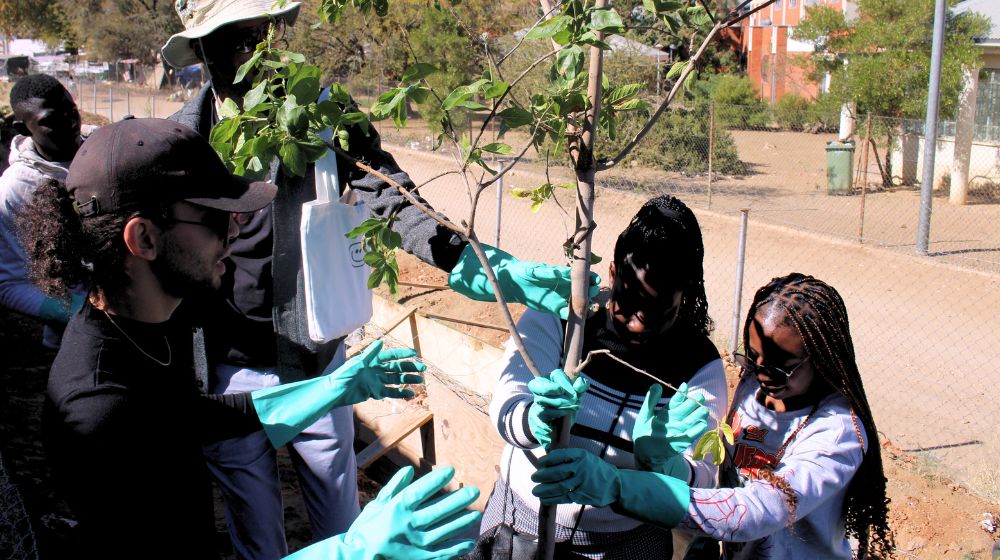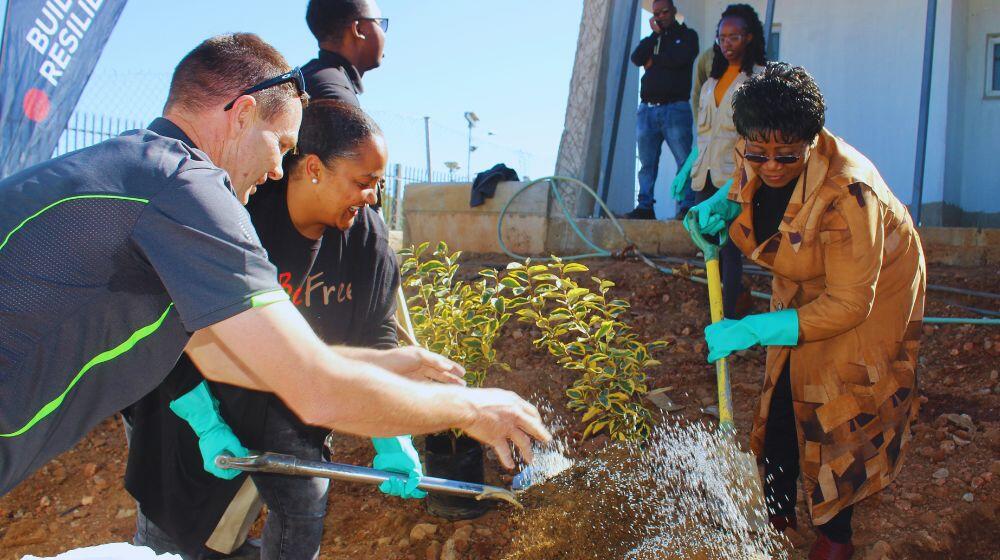
WINDHOEK, Namibia - “The youth have no place to go to or to talk about their problems.”
At 16, Maria Hailonga is a high school learner who has experienced a significant trauma that affected her mental health – the untimely passing of the mother.
According to the World Health Organisation (WHO), Namibia has one of the highest instances of suicide in the Africa with an estimated rate of 9.7 in a 100,000 population. Triggers for suicidal behaviour or attempts include romantic relationship or marriage break-ups, family problems, financial crises, physical or verbal abuse by a spouse or partner and the death of a loved one.
On a global level, suicide is the fourth leading cause of death among 15 to 19-year-olds.
“A lot of us want to pursue our dreams but some people do not live with their parents or do not have their support so it becomes difficult because we do not have the resources”, she added.
Creating a supportive and empowering community among young people, like Maria, is crucial for them to thrive mentally, emotionally, physically and economically especially considering the immense impact the COVID-19 pandemic has had on mental and sexual health, education and employment opportunities.
With the support of the Japanese Government and the United Nations Populations Fund (UNFPA), the #BeFree Movement held a tree planting ceremony on 16 June 2023 at the #BeFree Youth Campus in anticipation of its opening later in the year.
“We as the youth have the ideas but we need the spaces, infrastructure, guidance, mentorship and support amongst each other to create peer-to-peer relationships so we can create these communities”.
'We are not only planting a simple tree, we are creating a form of protection, a form of mentorship and place of congregation."
“We are not only planting a simple tree, we are creating a form of protection, a form of mentorship and place of congregation”, explained Sadam Biwa #BeFree Movement Project Manager.
Just as trees symbolize strength, stability, and the ability to adapt and endure, the Centre aspires to create a safe space for young people to flourish and reach their full potential. The centre will be a platform to inspire Namibian youth, help them to exhibit their talents in a safe environment as well provide access to critical services.
#BreakFree National Coordinator Frieda Stephanus noted that services at the #BeFree Youth Campus would comprise of the following key areas: prevention, mental and psychosocial support and clinical services.
“They are a safe haven for the youth, for people with different abilities and minorities. I discovered many things that I did not know I was good at, until I ventured into #BeFree. They are exposing people to what they are destined to be” said Lesley Shetukana, a 1st year university student at the event.
If mental health is not addressed amongst young people, these issues can extend well into adulthood where they can limit opportunities for leading fulfilling lives as adults.
“Look at how incredible things are when we engage young people, to understand what their needs are and help them be a part of building solutions. That says a lot about the work that we are supporting in terms of putting young people at the centre stage to build a country we want”, said Esther Nantana Leaving No One Behind Project Coordinator, UNFPA.
Mental health and psycho-social support is a component of the Leaving No One Behind Project in Namibia, which is funded by the Japanese Government. The project's primary goals are to restore dignity, reshape the future, and address Gender Based Violence (GBV) and negative Sexual and Reproductive Health (SRH) outcomes for women, girls, men, and boys in Namibia.


